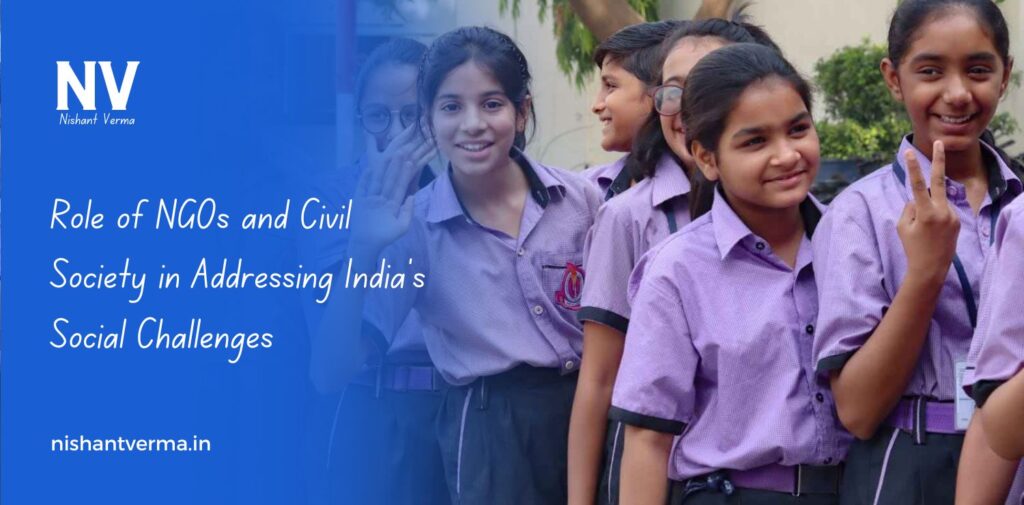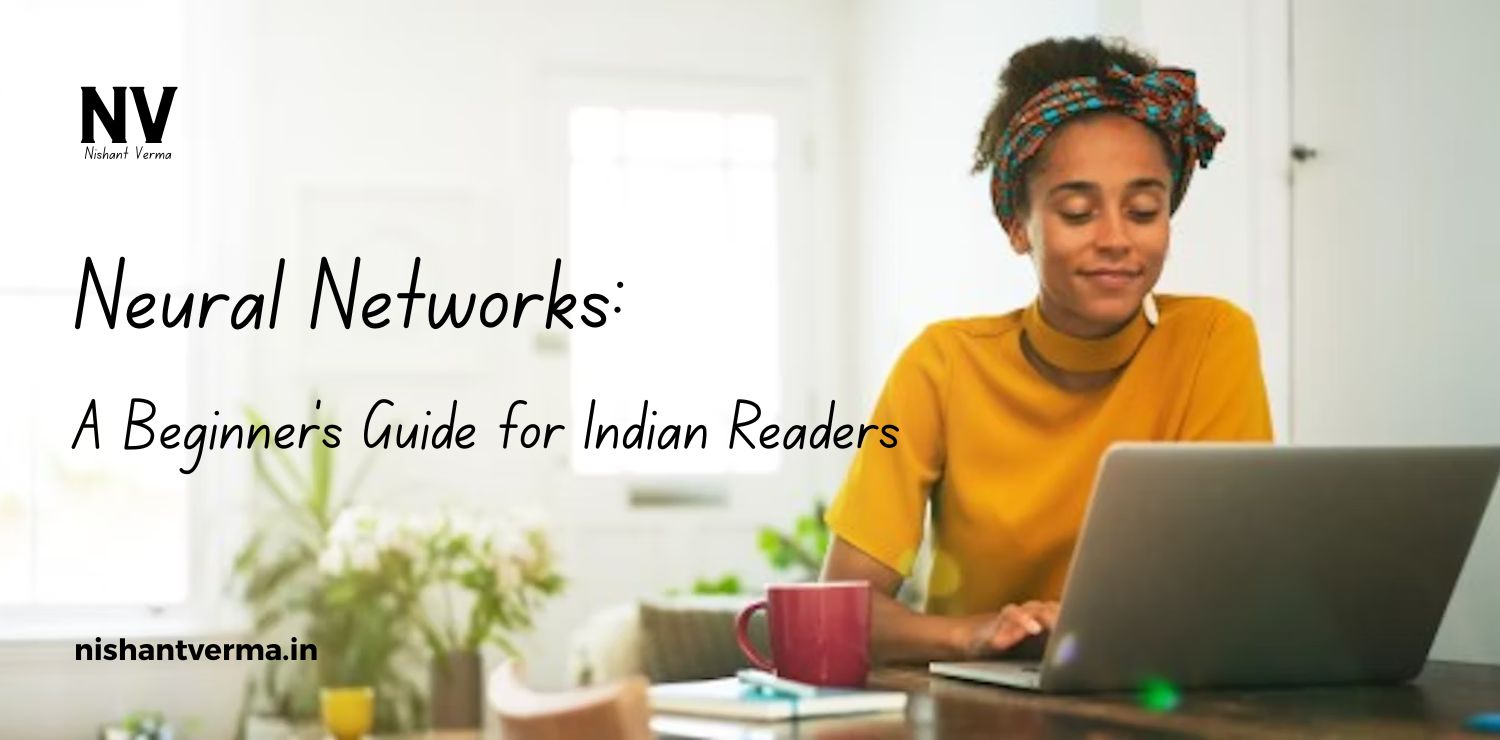India, a country with over 1.4 billion people, faces a range of social challenges. These include poverty, inequality, illiteracy, health problems, gender discrimination, and environmental issues. While the government plays a big role in tackling these challenges, many non-governmental organizations (NGOs) and civil society groups are also doing their bit to make life better for millions of people. In this article, we will explore how NGOs and civil society groups help address these issues and bring positive change in India.
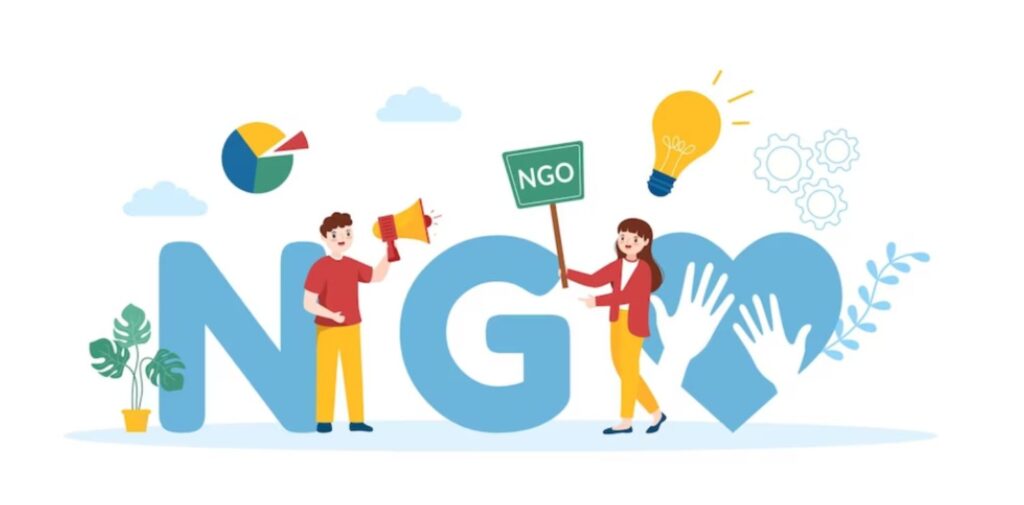
What Are NGOs and Civil Society?
Before we dive into how they help, let’s first understand what NGOs and civil society mean.
- NGOs (Non-Governmental Organizations): These are independent organizations that are not run by the government. They are formed by people who come together to work on social, environmental, or cultural issues. NGOs usually rely on donations, volunteers, and other sources of funding to carry out their work.
- Civil Society: Civil society refers to the group of people and organizations in a country that are not part of the government or the business world. These can include NGOs, community groups, social activists, and even ordinary citizens who come together to address social issues.
The Importance of NGOs and Civil Society in India
India is a country full of diverse people, cultures, and challenges. NGOs and civil society groups play an important role in making sure that the voices of the poor, the marginalized, and the vulnerable are heard. They help people in need, raise awareness about issues, and push for change in policies. But what exactly do they do? Let’s take a look.
Fighting Poverty and Inequality
One of the biggest social challenges in India is poverty. Despite India being one of the fastest-growing economies in the world, millions of people still live below the poverty line. NGOs work hard to improve the lives of these people by providing them with food, education, healthcare, and skills training.
Many NGOs also work to reduce the gap between the rich and the poor by promoting social equality. They raise awareness about the rights of underprivileged groups, such as Dalits (historically known as “untouchables”) and backward classes, and fight for their inclusion in society.
For example, organizations like Goonj are known for their work on poverty alleviation by providing clothes, sanitary products, and other basic needs to people in rural areas.
Improving Education
Education is a powerful tool that can change lives. However, many children, especially in rural areas, do not have access to quality education. NGOs are playing a big role in providing education to children who might otherwise never go to school.
Many organizations run schools, provide books, and even offer free tutoring to children from low-income families. For instance, Pratham is one of the largest NGOs in India, working to improve the quality of education in government schools. They use innovative methods to make learning more fun and engaging for children.
Healthcare for All
India has made huge progress in healthcare, but there are still millions of people who lack access to proper medical care. NGOs and civil society groups provide healthcare services to those who are unable to afford them. They run free health camps, provide medicines, and help with vaccination drives.
Some NGOs also focus on mental health, which is often neglected in India. Organizations like The Banyan work towards providing mental health care to homeless women and children, who are often left without any support.
Protecting the Environment
Environmental challenges like pollution, deforestation, and climate change are huge problems in India. NGOs and civil society groups are taking steps to address these issues by spreading awareness, encouraging sustainable practices, and working with communities to protect natural resources.
For example, The Nature Conservancy works to protect the forests and wildlife in India. They help in reforesting areas and protecting endangered species. Similarly, Greenpeace India runs campaigns to reduce pollution and promote clean energy.
Promoting Women’s Rights
In many parts of India, women face gender-based violence, discrimination, and a lack of opportunities. NGOs are working hard to promote women’s rights and ensure that women and girls have equal access to education, healthcare, and employment.
Organizations like UN Women India and Self-Employed Women’s Association (SEWA) work to empower women by providing them with skills training, financial support, and legal help. They also raise awareness about issues like child marriage, dowry, and domestic violence.
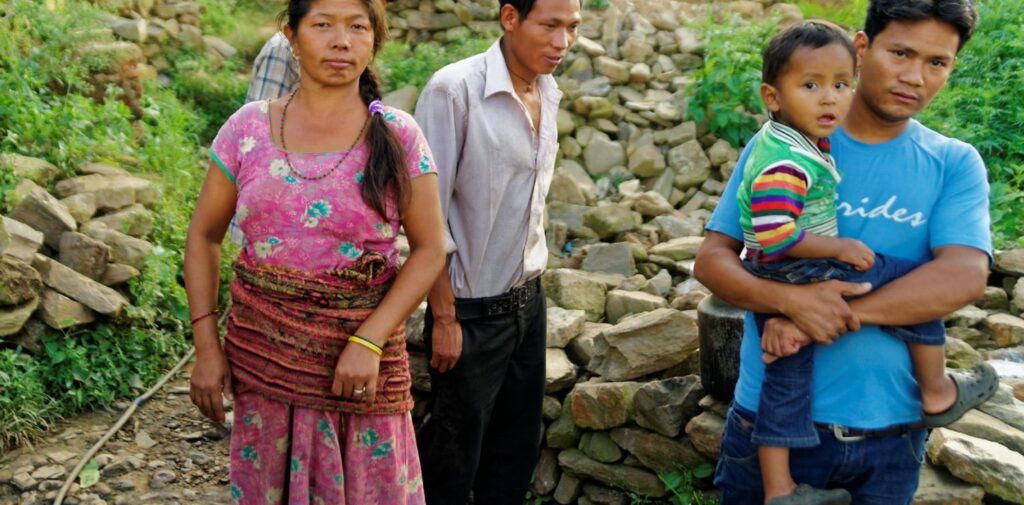
Supporting the Marginalized and Vulnerable
There are several groups of people in India who are often ignored by society, including the elderly, the differently-abled, and people living with HIV/AIDS. NGOs and civil society groups work to improve the lives of these vulnerable groups.
For example, HelpAge India focuses on the welfare of the elderly, providing them with health services, social security, and even a platform to voice their concerns. Similarly, organizations like The Naz Foundation work towards the rights and health of people living with HIV/AIDS.
Advocating for Policy Change
NGOs and civil society groups don’t just provide services; they also push for changes in government policies that affect people’s lives. They work with the government to improve laws and policies related to education, healthcare, women’s rights, and the environment.
For example, The Right to Food Campaign is an NGO-led movement that successfully pushed for the National Food Security Act, which guarantees food to the poorest families in India. Similarly, The Jan Swasthya Abhiyan fights for affordable and quality healthcare for all.
Building Strong Communities
NGOs and civil society groups help people come together and build stronger communities. They do this by organizing events, offering training programs, and encouraging people to take part in social causes. By creating a sense of community, these organizations help people realize their potential and work together to solve common problems.
For example, Barefoot College trains women, especially grandmothers, from rural areas to become solar engineers. This not only helps in providing clean energy to villages but also empowers women in the community.
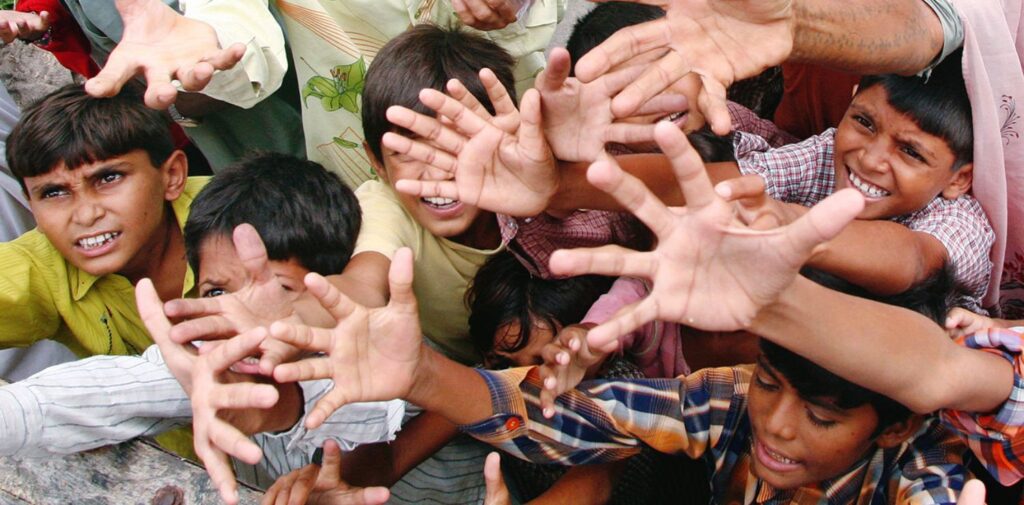
Challenges Faced by NGOs and Civil Society
While NGOs and civil society groups are doing great work, they also face several challenges. These include limited funding, government regulations, and sometimes, opposition from those who don’t want to see change. Despite these difficulties, many organizations continue to fight for the betterment of society.
Conclusion
In India, NGOs and civil society groups play a crucial role in addressing the country’s social challenges. They fight against poverty, improve education and healthcare, protect the environment, and work towards equality for all. They bring hope and change to millions of people, often where the government cannot reach. Through their efforts, these organizations are making India a better place for everyone, and their work continues to be an important part of the country’s growth and development.
NGOs and civil society groups are a powerful force in India’s journey toward a better future.

